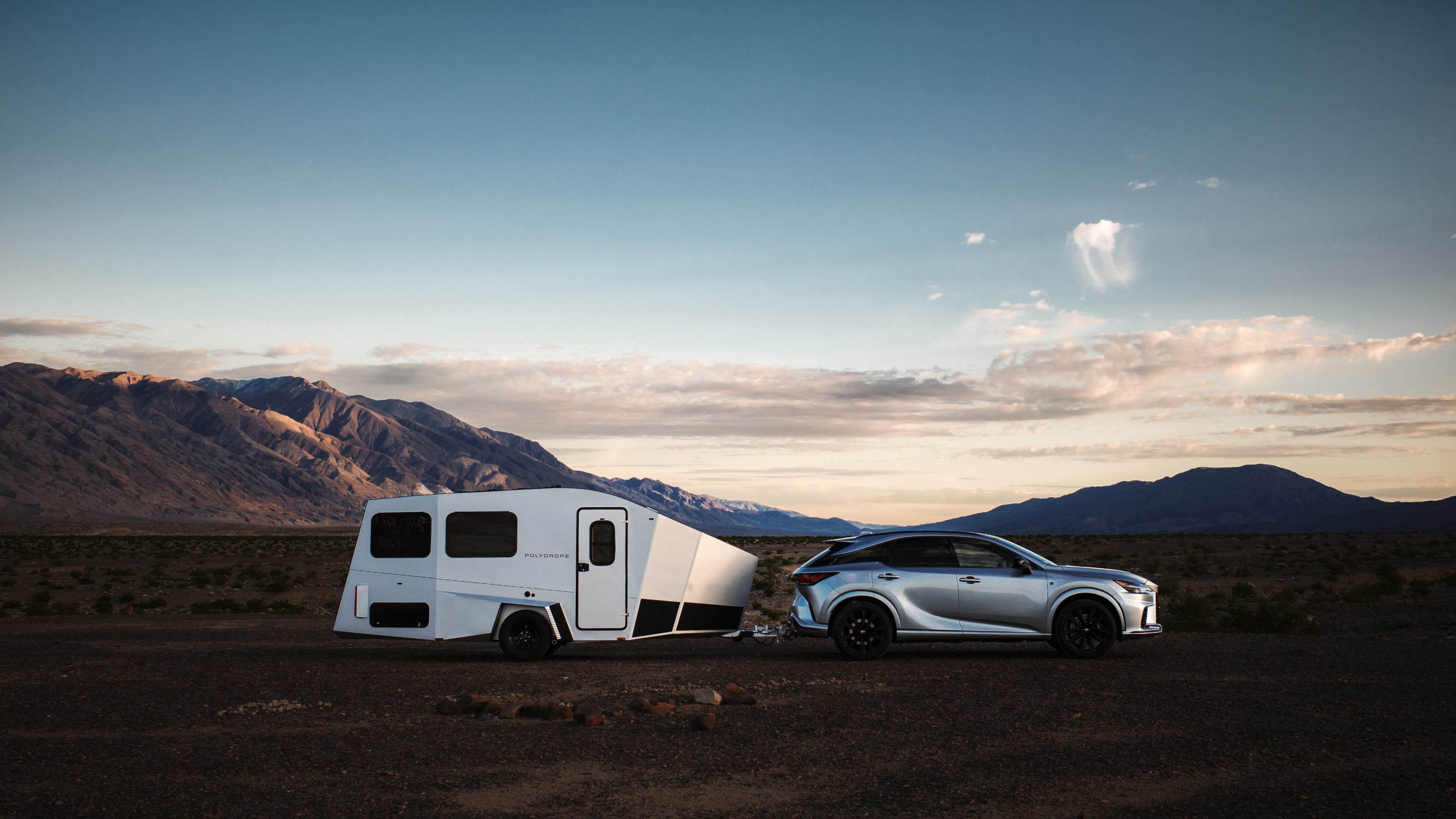
Polydrops is the Southern California-based manufacturer of specialist, EV-focused travel trailers. It’s founded by husband-and-wife team Kyunghyun and Jieun Lew, former SCI-Arc students who immigrated from South Korea to set up shop on the West Coast, and the duo’s aspiration is to ‘create portable spaces based on our architectural background’.
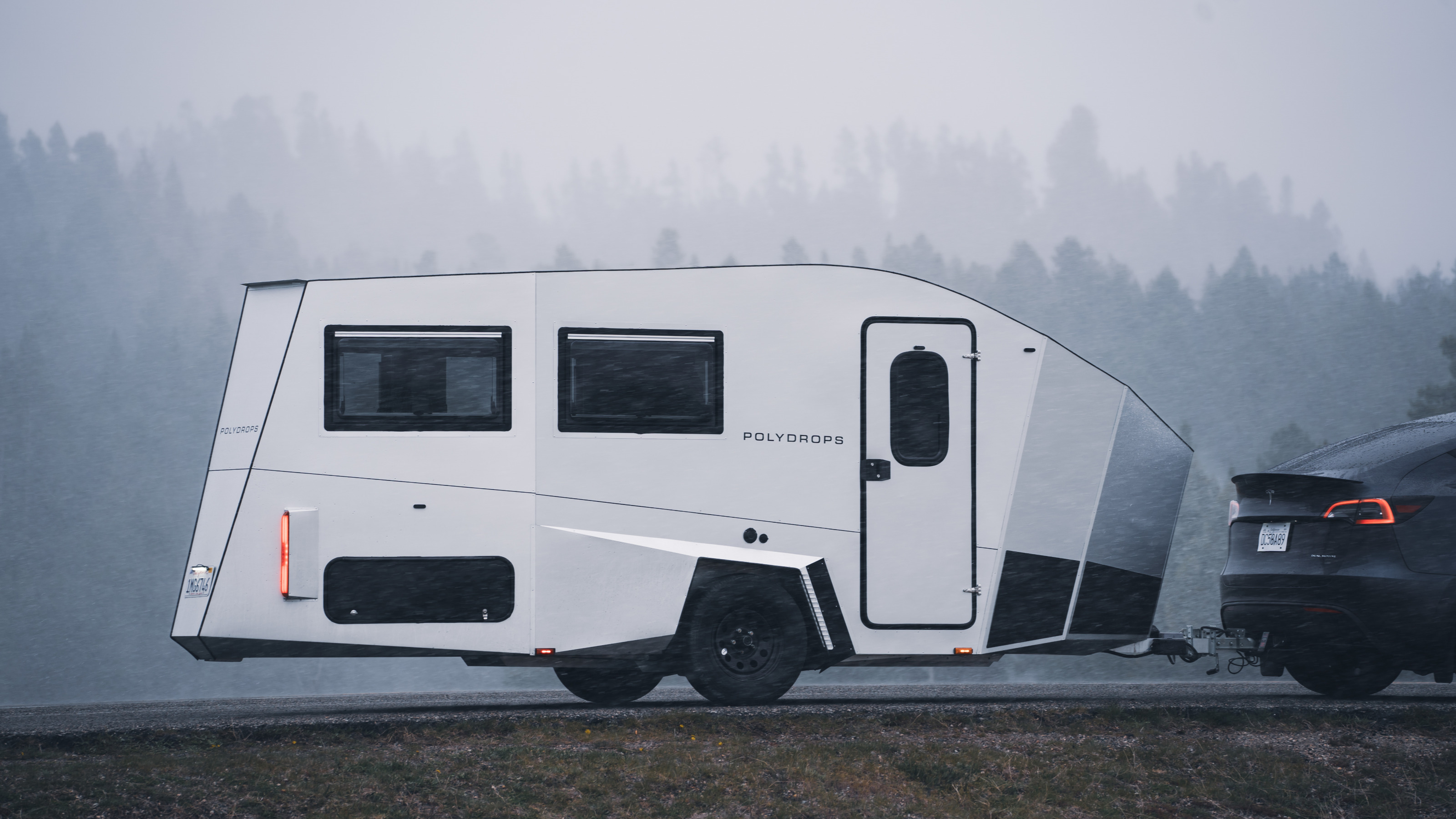
Their first product was the Polydrops P19, followed by the tiny Polydrops P17A1 All Electric, which turned the streamlined teardrop-style camper into a faceted, futuristic and extremely aerodynamic trailer designed to be towed behind an EV.
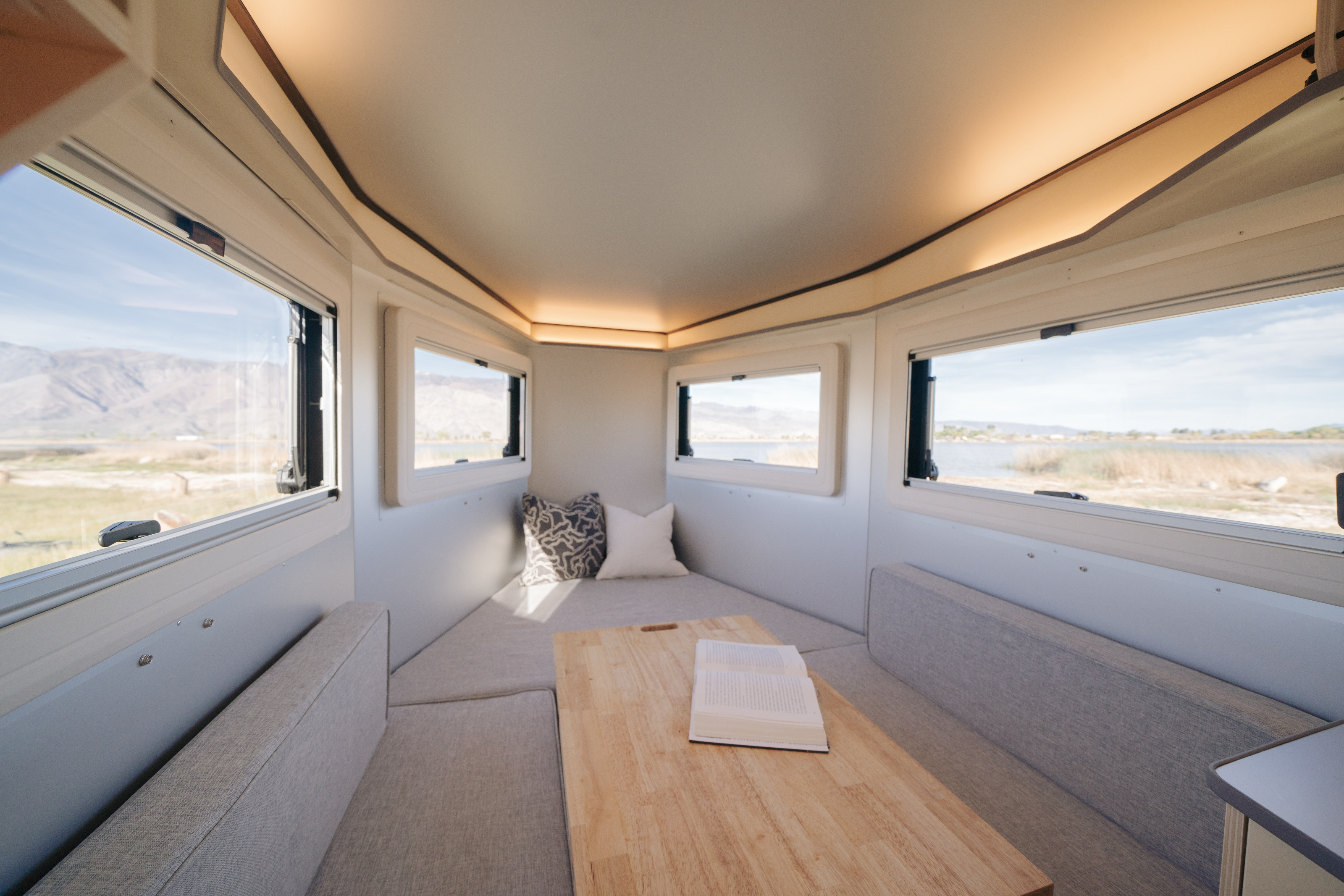
Now Polydrops has scaled up. ‘Our earlier trailer focused on compact, ultra-efficient design,’ says Kyunghyun and Jieun Lew. ‘The P21 takes things to the next level with more space, enhanced functionality, and a continued commitment to sustainability and modern aesthetics.’
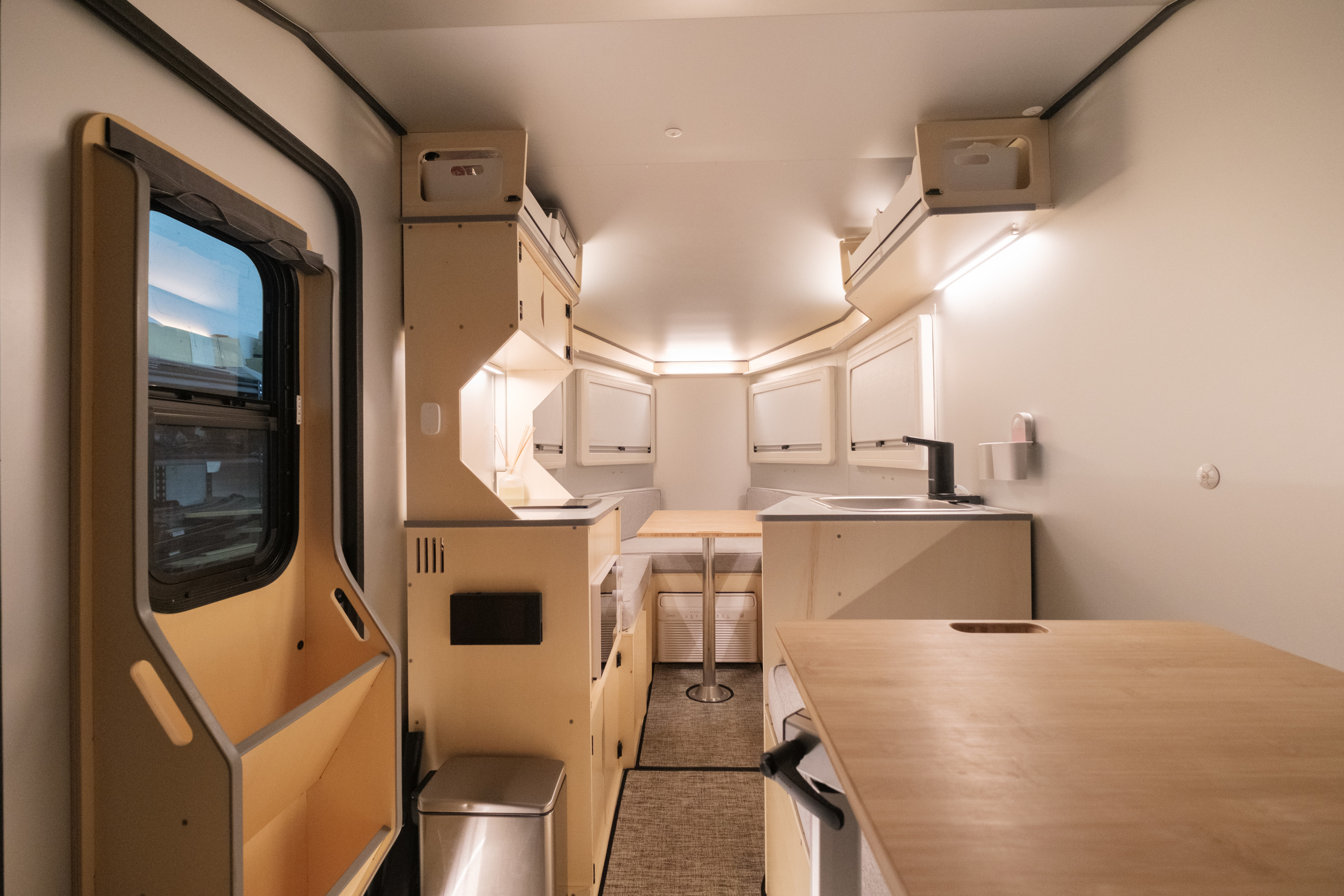
The P21 builds on the aesthetic established by the P17 and the current P19 and XP19 teardrop trailers (the latter is a more rugged version for off-roading). However, as a full-size caravan, the P21 offers space for an entire family, with a multipurpose lounge area that transforms from a dining space into a queen-size bed. There’s a separate, smaller, bed area at the front for children.
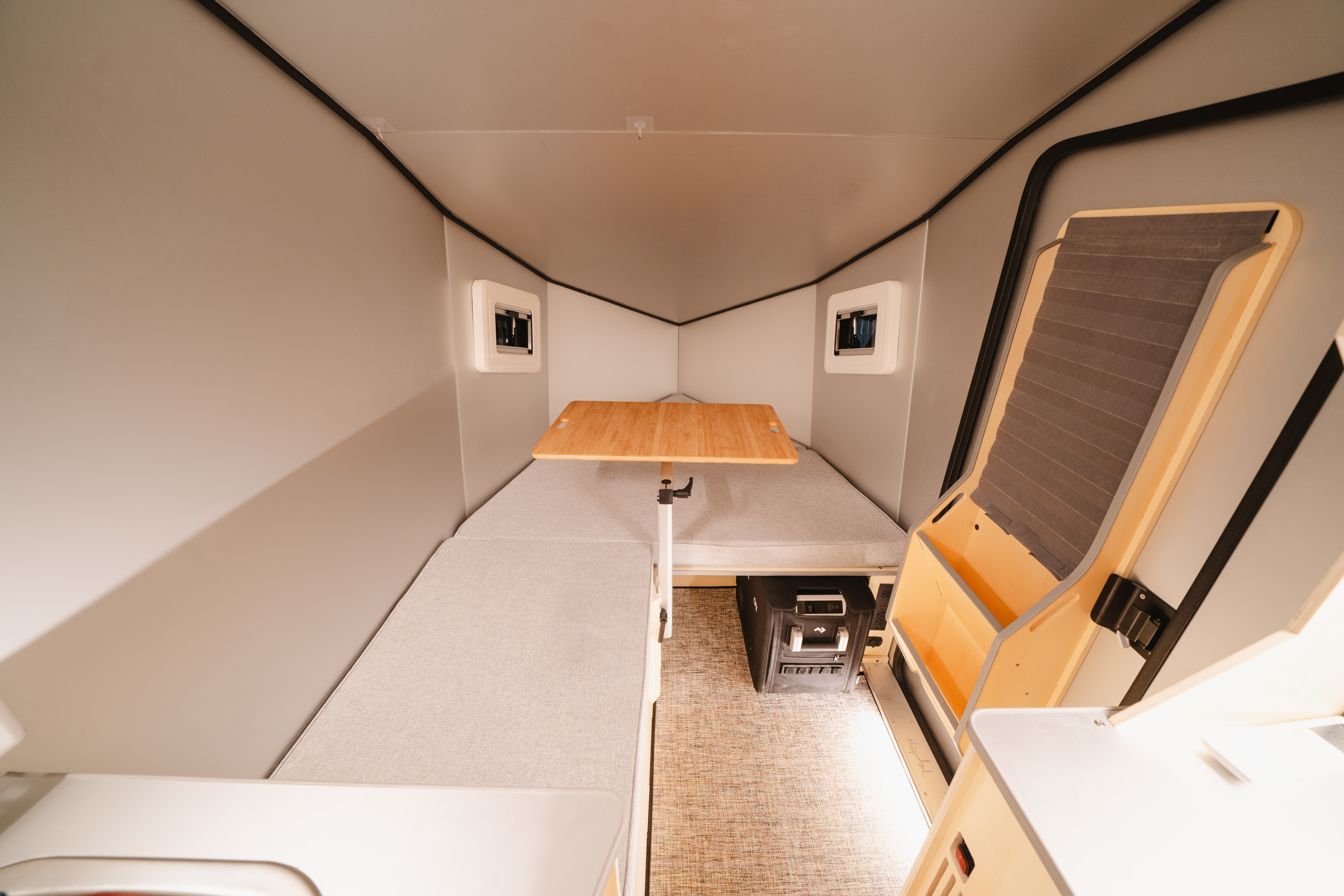
Extras include an optional Cooking Station and a Sanitation Unit, which squeezes sink, shower and portable toilet into one of the banquettes. High levels of insulation and a sophisticated climate control system add to the comfort factor, while there are also large windows throughout, especially in the streamlined tail, which bring in light and ventilation.
Polydrops knows that its audience wants to work remotely as well as kick back, and there’s a dedicated workspace area in the lounge, complete with all the power outlets you need. LED lighting throughout provides adjustable levels of ambience.
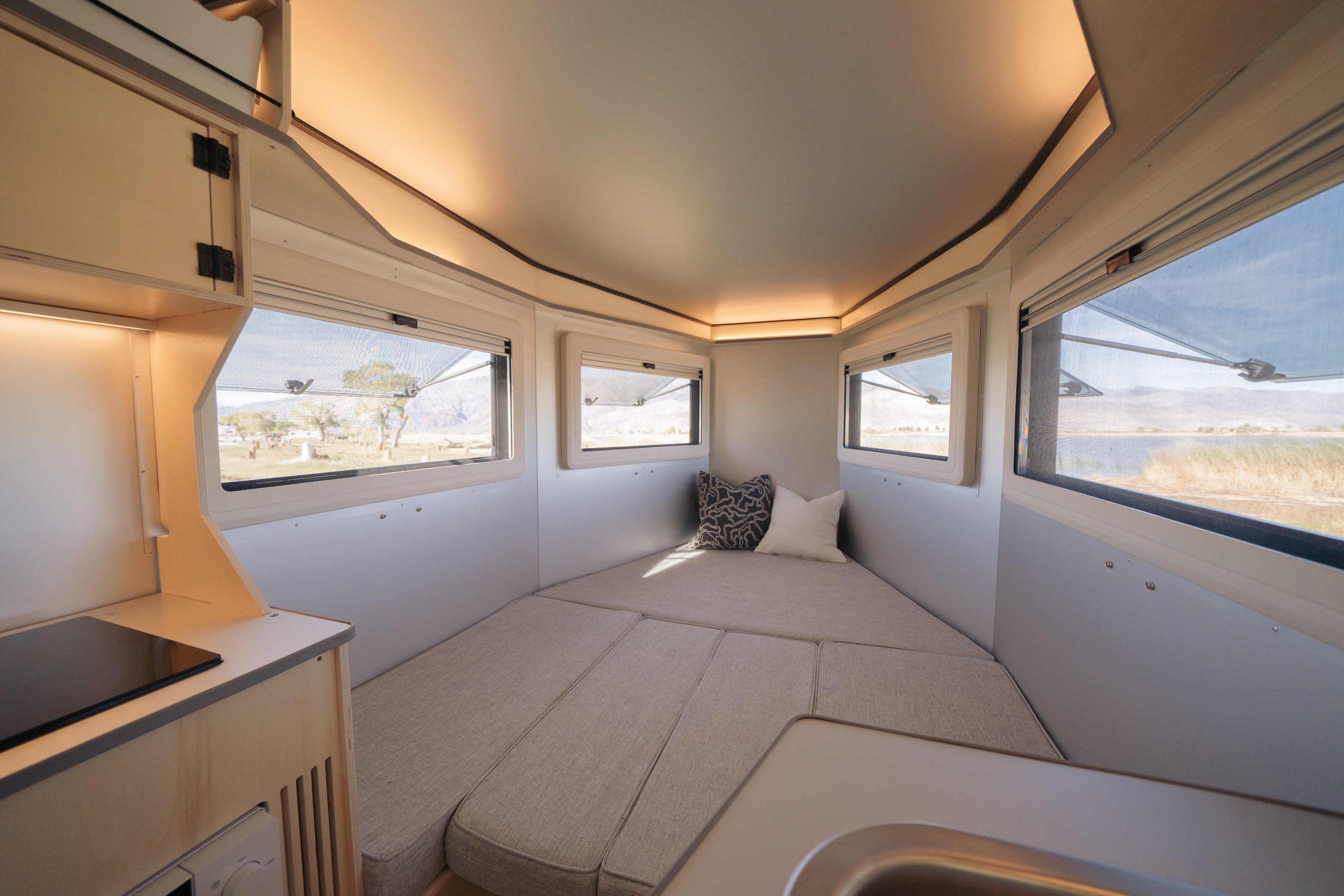
‘The idea was Inspired by the differences between American and Korean design philosophies,’ say the architects. ‘We discovered significant differences between the residential design philosophies of the US and South Korea. In Korea, insulation – its type, thickness, and placement – is considered a critical factor in energy management, serving as a key determinant of housing quality. In contrast, US residential design prioritises oversized HVAC systems to compensate for insulation inefficiency.’
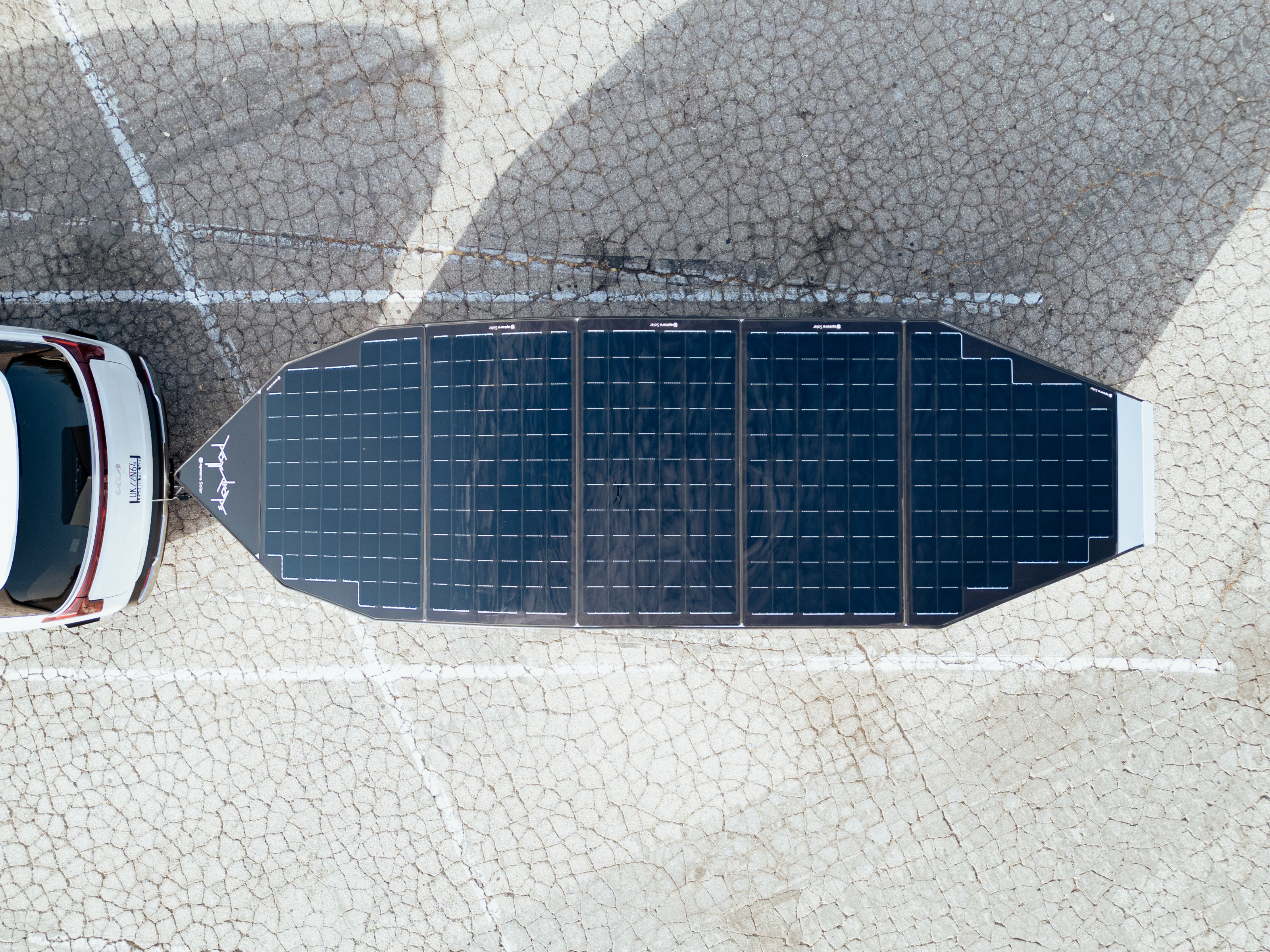
By taking the Korean ethos of energy efficiency and applying it to an RV, Polydrops has created a model that syncs beautiful with the EV age. ‘RVs are small, independent living spaces where energy production and storage are highly constrained,’ says Kyunghyun Lew, ‘As such, the conventional energy-intensive approach makes RVs inefficient and limits their sustainability.’
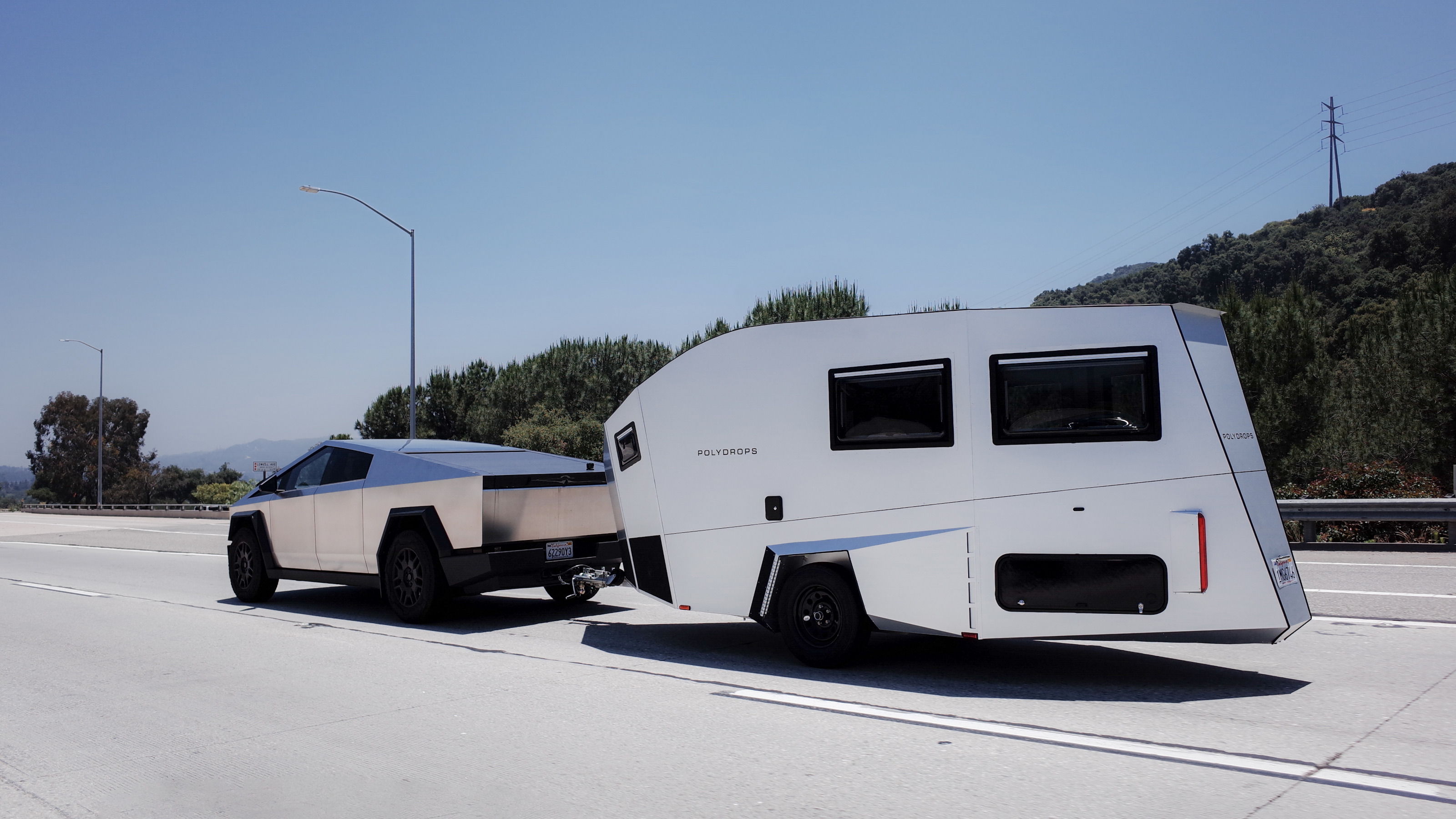
Efficiency is not just about insulation, but also the aerodynamic efficiency of the form. The polygonal exterior might look striking and architectural, but it also serves an aerodynamic purpose and makes the integration of insulation more efficient. On top, there’s space for an array of solar panels, which can add power to the standard 5kWh battery. The team claim that the insulation levels mean the RV can run its aircon for 19 hours using just the battery, and sunlight boosts the charge during travel.
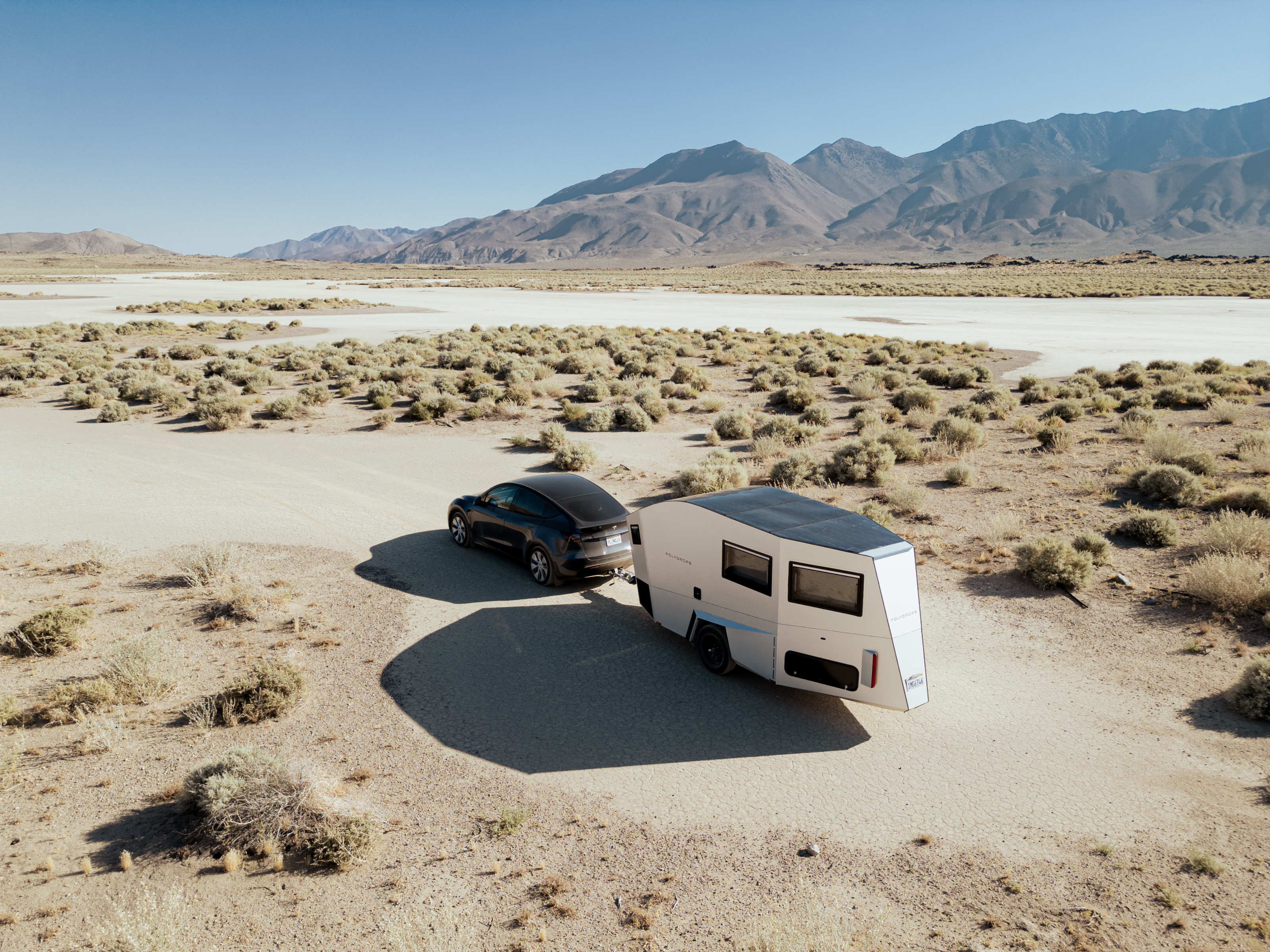
‘Polydrops P21 is not an RV. It is the result of a study in exploring new philosophies in residential design,’ Kyunghyun Lew concludes.
Polydrops P21, from $38,900, Polydrops.com, @Polydrops







